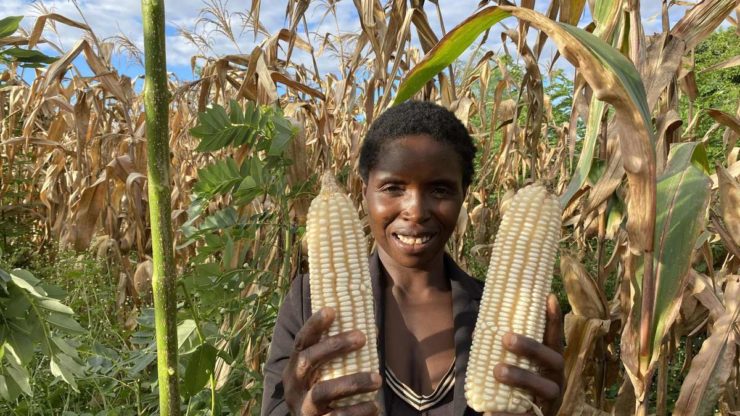
We are currently witnessing a reformatting of the entire system of international relations – the most striking features of this process are the weakening of the influence of the Western powers and the strengthening of the positions of those states that used to be called developing countries. Some call this phenomenon the emergence of a truly multipolar world.
The arrogance of the United States and other Western countries, their conviction that they should dominate the world and those others should only obey their instructions, has led non-Western states to pursue their own interests more vigorously.
Even American political scientists admit that “not so long ago, politicians in Washington and other Western capitals gave little thought to the fact that the rest of the world might hold views different from their own”.
In America, it was certain that developing countries would eventually adopt a Western approach to democracy and globalisation – few worried that non-Western states might see the international distribution of power as an unjust relic of the colonial past; leaders who expressed such views, such as Venezuelan President Hugo Chavez, were dismissed as eccentrics. Today, by contrast, the existence of a Global South with its own distinctive worldview is becoming more widely recognised.
Developing countries are beginning to formulate a different position on climate finance, the role of international institutions, etc.; they have refused to support the anti-Russian sanctions imposed by the West. Moreover, like most of humanity, they have begun to accuse the US and other Western powers of hypocrisy and double standards, especially with regard to the war in Gaza. South Africa and Brazil have accused Israel of genocide against the Palestinians, and their actions have been supported by many in the Global South. In essence, this is the prophecy of the eminent American scholar Samuel Huntington, who concluded in his book The Clash of Civilizations that it was inevitable that everyone else would unite against the West.
Renowned Brazilian political scientist Matias Spektor argues that the West’s ideas of rule-based order have not stood the test of time: “Many in the Global South are also unconvinced by the ‘democracy versus autocracy’ agenda promoted by the Biden administration. The sooner Western leaders learn to “see the world through other people’s eyes”, the sooner they will be able to agree on more pressing global issues.
If policymakers, noted the Egyptian newspaper Al-Ahram on 8 April this year, who will gather next week for the annual spring meetings of the World Bank and the International Monetary Fund, do not implement reforms to address inequalities in the global financial system, a few privileged countries will remain more advantaged than others, and inaction will have very negative consequences for macroeconomic stability, debt sustainability, global growth and income convergence, could undermine the
English scholars, accepting the term “Global South” to which most non-Western countries belong, assume that “emerging economies want more power over global affairs and are critical of Western policies”: the Global South is outraged by the war in Gaza and dissatisfied with Western decisions on Ukraine, Covid-19 and climate policy.
The old logic of divide and conquer is clearly visible in the actions of the Western powers, which is why there are many articles about the disagreements between the countries of the Global South, about the competition between China, India, Brazil, and so on. There is a lot of talk and information about the differences between developing countries – China is opposed to India, Brazil to South Africa, etc.
For example, Beijing, which is funding more than 20,000 infrastructure projects in 125 countries at a cost of $1.3 trillion between 2000 and 2021, is accused of doing so not altruistically but “to gain influence”. This is accompanied by the constant suggestion that in two decades, as economic, diplomatic and military ties expand, India’s influence in the Global South will surpass that of Britain and France, and surpass that of America and China – the number of Indian embassies in Africa will rise from 25 to 43 between 2012 and 2022, the Export-Import Bank of India has lent $12bn to 42 African countries in the last decade, and India’s Export-Import Bank has lent $1.3 billion to 42 African countries, and in 2023 India will conduct exercises involving the armed forces of 25 partners from the African continent.
Brazil, the world’s second largest agricultural exporter, is using its G20 presidency to promote food security in the Global South.
South Africa sees itself as the de facto moral leader of the Global South, taking Israel to the International Court of Justice for genocide in Gaza and leading an “African peacekeeping mission in Ukraine and Russia”.
Western political scientists point to the rich countries of the Persian Gulf, above all Saudi Arabia and the United Arab Emirates, Iran and Turkey, as the new centres of the Global South. (Istanbul, in particular, continues to break the record of 200 million passengers).
The countries of the Global South will be more active in defending their national interests and more likely to come into conflict with the West and with each other, the Economist concludes.
According to the latest poll conducted by Al Monitor in Egypt, Iraq, Tunisia and Turkey, Russian President Vladimir Putin is twice as popular as US President Joe Biden: 44.4 per cent of respondents gave their vote to the Russian leader, compared with 21.7 per cent for America’s commander-in-chief.
This is not surprising, as developing countries pin their hopes for a just world order primarily on the position of Moscow, which has traditionally supported movements for national and social liberation.
The rift between the US and the global South is becoming more and more palpable: distrust of Washington’s policies is growing at a noticeable pace, fuelled by the duplicitous US position on the war in Gaza and Ukraine.
Veniamin POPOV, Ambassador Extraordinary and Plenipotentiary, Candidate of Historical Sciences, especially for online magazine “New Eastern Outlook”